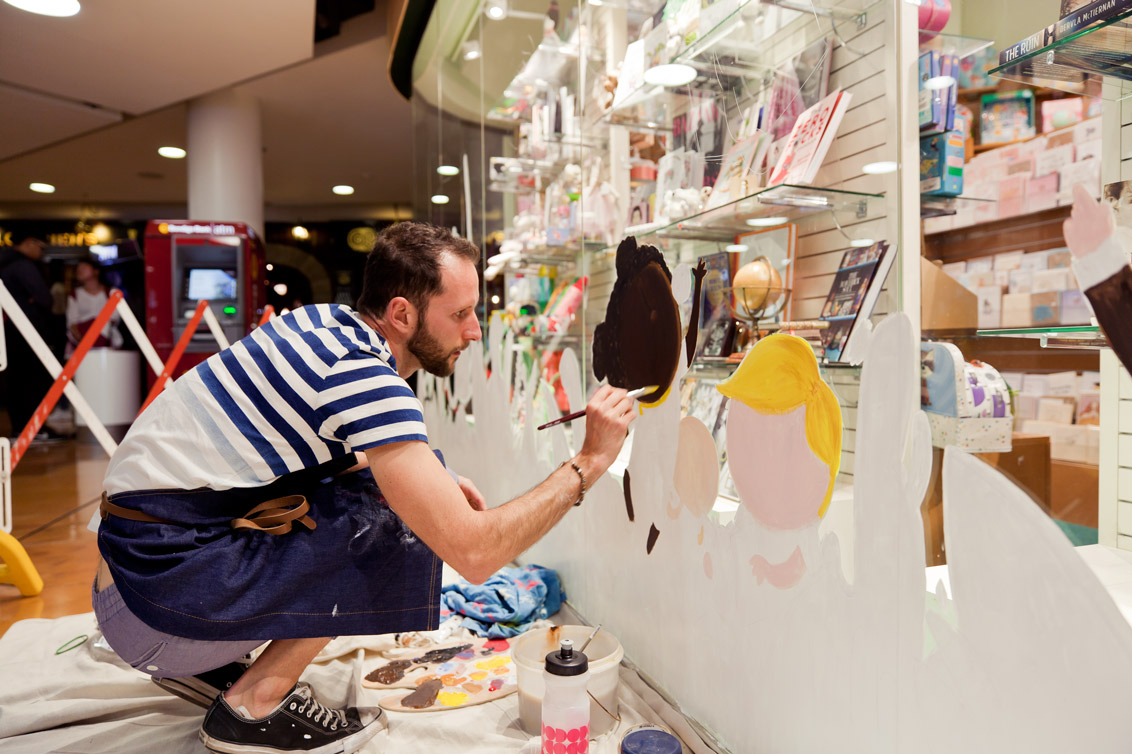I want the books that I put into the world to be things that I believe in. Messages that I believe are important. I want to spend my time creating books that have longevity in the lives of kids and adults. I want this criteria to be the key motivating force that drives me to decide whether or not I write a book, or illustrate someone else’s text. I think that making sure I don’t rely on my art for income is really important.

Freedom and Choice
I acknowledge that I’m one of the lucky ones. I have a day job that I really like. As a software designer, I get to work with a group of smart, diverse, and creative thinkers who are all motivated to make things better for people. The conversations I have with this amazing group of people have been hugely influential for shaping my view of the world, which in turn influences the stories I write and the art that I make. My job is in software, an in-demand industry that, let’s be honest, pays pretty well. The company I work for, Cogent, has flexible working hours and is fully supportive of its employees having other interests outside of the company mission. As I said, I’m pretty bloody lucky.
Having this level of flexibility, autonomy, and salary, means I’m free to explore the world of writing and illustration without being dependent on it for making a living. If the illustration jobs dry up, that’s OK. If I come across an offer to do a book about bums or poo, I can say no (although the little child in me will still giggle and probably want to give it a shot). I don’t need to chase a project because next month’s rent is due. It means that I can make choices driven by what means most to me, my values.
Is your day job actually good for your art?
I know many artists are striving to make more time for their art. They’re working day jobs in service of the creative work they’re trying to achieve on nights and weekends. Some of them dream of making a living from it someday. A vision of finally submitting that resignation letter to a manager they’ve tolerated but never liked. But sometimes, it’s worth thinking about whether that ‘dream’ is truly what we imagine it to be. Whether the yin and yang of ‘day job’ and ‘art’ actually work in service of one another. Perhaps the frustration you face in your day job is a source of energy in your creative work. A way to ‘rebel’ against the day’s events. That’s how it started for me. I found watercolour when I was searching for a way to spend more time away from the computer screen.
I often think, what would happen if I worked as a full-time illustrator? Would I miss the conversations and people I love to spend time with at work? Probably. Would I crave to return to some software-related hobby? Who knows? What happens when I’m forced to paint things I don’t necessarily enjoy painting because I need to pay the bills this month. Yikes, that sounds depressing.
See, maybe the answer isn’t leaving my day job and doing art full-time. Maybe there’s room for both in my life, and it’s better that way. Maybe it’s the same for you?
